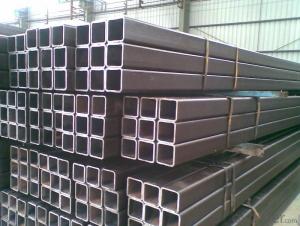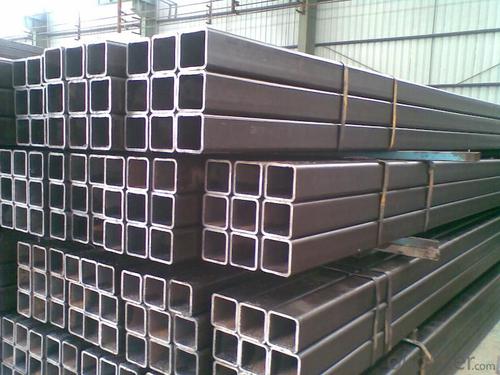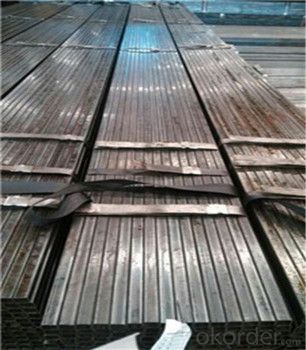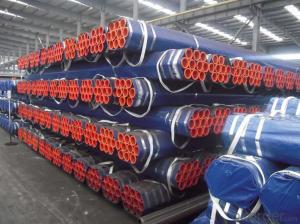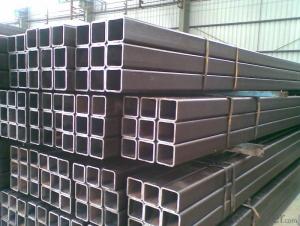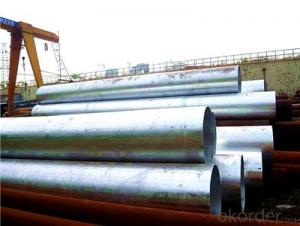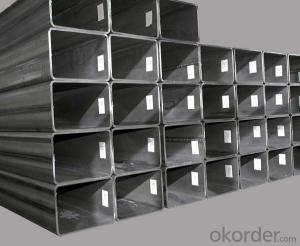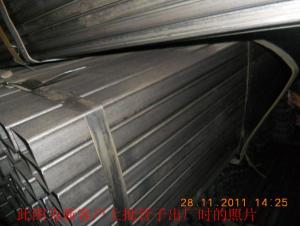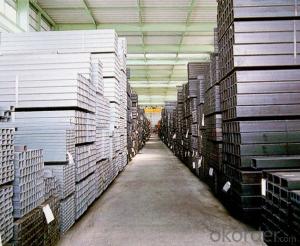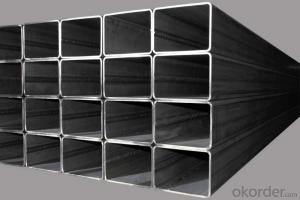GB/6278, ASTM High Quality Hollow Section with Best Price
- Loading Port:
- Tianjin
- Payment Terms:
- TT or LC
- Min Order Qty:
- 20 m.t.
- Supply Capability:
- 15000 m.t./month
OKorder Service Pledge
OKorder Financial Service
You Might Also Like
1、Structure of GB/6278, ASTM High Quality Hollow Section with Best Price:
ERW steel pipe is electric resistance welding, the abbreviation for ERW for transporting oil and natural gas vapor liquid objects, can meet the requirements of high and low pressure, the transport in the world with pipe sector accounted for a pivotal position.
2、Main Features of GB/6278, ASTM High Quality Hollow Section with Best Price:
• High manufacturing accuracy
• High strength
• Good visual effect
• Reasonable price
• Small inertia resistance
• Strong heat dissipation ability
3、GB/6278, ASTM High Quality Hollow Section with Best Price Specification:
Standard | GB, DIN, ASTM ASTM A106-2006, ASTM A53-2007 |
Grade | 10#-45#, 16Mn 10#, 20#, 45#, 16Mn |
Thickness | 1 - 33 mm |
Section Shape | Round |
Outer Diameter | 21 - 610mm |
Place of Origin | Tianjin, China (Mainland) |
Secondary Or Not | Non-secondary |
Application | Hydraulic Pipe |
Technique | Cold Drawn |
Certification | API |
Surface Treatment | factory state or painted black |
Special Pipe | API Pipe |
Alloy Or Not | Non-alloy |
Length | 5-12M |
Outer Diameter | 21.3-610mm |
Grade | 20#, 45#, Q345, API J55, API K55, API L80, API N80, API P110, A53B |
Standard | ASME, ASTM |
1) Material:20#(ASTM A 106/A53 GRB.API5LGRB,GB),45#,16Mn,10#.
2) Specification range:OD:21.3-610mm,WT:6-70mm,length:6-12m or according to the requirement of clients.
3) Excutive standards:GB,ASME API5L.ASTM A 106/A53,Despite of the above standards,we can also supply seamless steel pipe with standard of DIN,JIS,and so on,and also develop new products according to the requirements of our clients!
4) Surface:black lacquered,varnish coating or galvanized.
5) Ends:Beveled or square cut,plastic capped,painted.
6) Packing:bundles wrapped with strong steel strip,seaworthy packing.
4、Packaging & Delivery
Packaging Details: | seaworthy package,bundles wrapped with strong steel strip |
Delivery Detail: | 15-30days after received 30%TT |
5、FAQ of GB/6278, ASTM High Quality Hollow Section with Best Price:
①How is the quality of your products?
Our products are manufactured strictly according to national and internaional standard, and we take a test
on every pipe before delivered out. If you want see our quality certifications and all kinds of testing report, please just ask us for it.
Guaranteed: If products’ quality don’t accord to discription as we give or the promise before you place order, we promise 100% refund.
②How about price?
Yes, we are factory and be able to give you lowest price below market one, and we have a policy that “ for saving time and absolutely honest business attitude, we quote as lowest as possible for any customer, and discount can be given according to quantity”,if you like bargain and factory price is not low enough as you think, just don’t waste your time.Please trust the quotation we would give you, it is professional one.
③Why should you chose us?
Chose happens because of quality, then price, We can give you both.Additionally, we can also offer professional products inquiry, products knowledge train(for agents), smooth goods delivery, exellent customer solution proposals.Our service formula: good quality+good price+good service=customer’s trust
SGS test is available, customer inspection before shipping is welcome, third party inspection is no problem.
6.Images
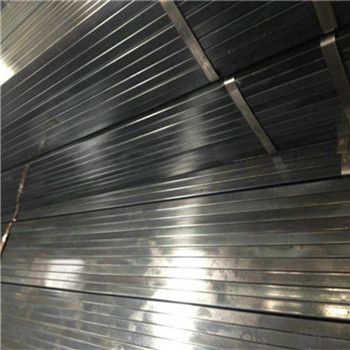
- Q: What are the common applications of steel pipes in the water distribution system?
- The common applications of steel pipes in the water distribution system include carrying potable water from the water treatment plants to homes and businesses, transporting water for irrigation purposes, and facilitating the flow of water in industrial processes. Steel pipes are often preferred due to their durability, resistance to corrosion, and ability to handle high water pressure.
- Q: How do you inspect steel pipes for defects?
- The inspection of steel pipes for defects requires a methodical approach that combines visual examination, non-destructive testing (NDT) techniques, and specialized equipment. The following are the typical steps undertaken to inspect steel pipes for defects: 1. Visual Examination: Commence by visually inspecting the external surface of the pipe, searching for any visible indications of defects, including cracks, dents, or corrosion. Particular attention should be given to welds, joints, and areas prone to stress or damage. 2. Ultrasonic Testing (UT): Ultrasonic testing is commonly employed to identify internal defects in steel pipes. This technique involves transmitting ultrasonic waves into the pipe and then interpreting the echoes received. Any irregularities in the internal structure, such as cracks or voids, can be identified and analyzed. 3. Magnetic Particle Inspection (MPI): MPI is a widely utilized technique for detecting defects on or near the surface, such as cracks, seams, or other discontinuities. This method involves applying a magnetic field to the pipe and subsequently applying ferromagnetic particles (usually iron-based) to the surface. These particles accumulate and form visible indications at areas where magnetic flux leakage is caused by defects. 4. Eddy Current Testing (ECT): Eddy current testing is suitable for detecting surface and near-surface defects in conductive materials like steel. This technique involves inducing an alternating current into the pipe and monitoring changes in the electrical currents induced by any present defects. These changes are then analyzed to identify and evaluate the defects. 5. Radiographic Testing (RT): Radiographic testing is conducted by exposing the steel pipe to X-rays or gamma rays and capturing radiographic images of the pipe. This technique allows for the detection of internal defects, such as cracks, porosity, inclusions, or variations in wall thickness. The radiographic images are subsequently examined for any indications of defects. 6. Dye Penetrant Inspection (DPI): DPI is a method used to identify defects on the surface of steel pipes. It involves applying a liquid dye to the surface, which penetrates into any surface cracks or flaws. After sufficient time for the dye to seep in and react, excess dye is removed, and a developer is applied to draw out the dye from the defects, rendering them visible. 7. Pressure Testing: Pressure testing entails pressurizing the steel pipe to a predetermined level and monitoring for any pressure drops or leaks. This test ensures that the pipe can withstand the required pressure without any structural defects. It is worth noting that the choice of inspection technique depends on various factors, such as the type of defect being sought, the size and characteristics of the pipe, and the specific industry standards and regulations. Inspection professionals with expertise in NDT methods and equipment are typically employed to ensure precise and dependable results.
- Q: What are the factors to consider when selecting steel pipes for a project?
- When selecting steel pipes for a project, there are several factors to consider. These include the pipe's diameter, thickness, and length, as well as its intended use and the specific requirements of the project. Other important factors to consider are the type of steel used, its corrosion resistance, strength, and durability. Additionally, factors such as cost, availability, and environmental impact should also be taken into account. By considering these factors, you can ensure that the selected steel pipes meet the project's needs and perform effectively.
- Q: Material of welded steel pipe
- GB/T3091-1993 (galvanized steel pipe for low pressure fluid delivery). Mainly used to transport water, gas, air, oil and heating, hot water or steam, etc. generally lower pressure fluid and other use tube. Its representative material is Q235 grade a steel.
- Q: How are steel pipes graded?
- Steel pipes are graded based on several factors to determine their quality and suitability for specific applications. The grading system for steel pipes typically includes parameters such as the chemical composition, mechanical properties, manufacturing method, and testing standards. 1. Chemical composition: Steel pipes are graded based on the elements present in their composition. This includes the amount of carbon, manganese, phosphorus, sulfur, and other alloying elements. The chemical composition greatly influences the pipe's strength, corrosion resistance, and other properties. 2. Mechanical properties: The mechanical properties of steel pipes are crucial for determining their strength, flexibility, and resistance to pressure and temperature. These properties include tensile strength, yield strength, elongation, hardness, and impact toughness. Pipes with higher mechanical properties are generally graded higher. 3. Manufacturing method: Steel pipes can be manufactured using various methods, such as seamless, welded, or ERW (Electric Resistance Welding). The manufacturing method affects the pipe's integrity, dimensional accuracy, and overall quality. Seamless pipes, for example, are considered to have higher quality due to their uniformity and absence of weld seams. 4. Testing standards: Steel pipes are graded based on their adherence to specific testing standards. These standards ensure that the pipes meet the required quality criteria and are suitable for their intended applications. Common testing standards include ASTM (American Society for Testing and Materials), API (American Petroleum Institute), and EN (European Norms). Based on these factors, steel pipes are often graded using alphanumeric codes or specifications. For instance, pipes used in oil and gas industry may be graded as API 5L (American Petroleum Institute) or pipes used for structural purposes may be graded as ASTM A500 (American Society for Testing and Materials). In conclusion, steel pipes are graded based on their chemical composition, mechanical properties, manufacturing method, and adherence to testing standards. These grades help customers and manufacturers in selecting the appropriate pipes for specific applications, ensuring safety, durability, and efficiency in various industries.
- Q: How are steel pipes used in the aerospace industry?
- Steel pipes are commonly used in the aerospace industry for various applications such as fuel lines, hydraulic systems, and structural components. These pipes provide strength, durability, and resistance to high pressure and extreme temperatures, making them ideal for delivering fluids and gases, supporting critical systems, and ensuring the structural integrity of aircraft and spacecraft.
- Q: How are steel pipes used in the construction of chemical plants?
- Steel pipes are commonly used in the construction of chemical plants due to their excellent durability, strength, and resistance to corrosion. They are used to transport various chemicals, gases, and fluids throughout the plant, ensuring a safe and efficient flow. These pipes are also used for structural support, providing stability to the plant's infrastructure. Additionally, steel pipes are often used for the installation of heating, ventilation, and air conditioning systems, as well as for the construction of process equipment and storage tanks within the chemical plant.
- Q: What are the different types of coatings used for steel pipes?
- There are several different types of coatings used for steel pipes, including epoxy coatings, polyethylene coatings, coal tar enamel coatings, and zinc coatings.
- Q: Can steel pipes be used for wastewater treatment?
- Yes, steel pipes can be used for wastewater treatment. Steel pipes are commonly used in the construction of wastewater treatment plants and systems due to their durability, strength, and resistance to corrosion. They are especially suitable for transporting and distributing wastewater, as they can withstand high pressure and temperature variations. Steel pipes can also be coated or lined with materials that provide additional protection against corrosion and chemical reactions with the wastewater. However, it is important to ensure that the steel pipes are properly maintained, inspected, and replaced when necessary to prevent any potential leaks or failures that could compromise the wastewater treatment process.
- Q: What is the difference between steel pipes and fiberglass pipes?
- Steel pipes are made from a durable alloy of iron and carbon, while fiberglass pipes are composed of a reinforced plastic material. The main difference is that steel pipes are stronger and more resistant to high temperatures and pressure, making them suitable for heavy-duty applications such as oil and gas pipelines. On the other hand, fiberglass pipes are lighter, corrosion-resistant, and have better thermal insulation properties, making them ideal for industries like chemical processing and wastewater treatment.
Send your message to us
GB/6278, ASTM High Quality Hollow Section with Best Price
- Loading Port:
- Tianjin
- Payment Terms:
- TT or LC
- Min Order Qty:
- 20 m.t.
- Supply Capability:
- 15000 m.t./month
OKorder Service Pledge
OKorder Financial Service
Similar products
Hot products
Hot Searches
Related keywords
